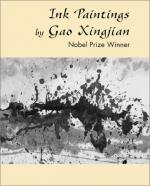|
This section contains 1,103 words (approx. 4 pages at 300 words per page) |

|
SOURCE: Lovell, Julia. “Nobel Prize for Literature 2000.” Times Literary Supplement, no. 5090 (20 October 2000): 15.
In the following essay, Lovell evaluates the significance of Gao's winning of the Nobel Prize in Literature to his status as a self-exiled dissident Chinese writer and to Western conceptions of Chinese literature.
“The Nobel Literature Prize has been used for ulterior political motives, and is not worth commenting on.” (Chinese Foreign Ministry, October 13, 2000). The awarding, last week, of the Nobel prize for Literature to Gao Xingjian was instantly politicized, partly thanks to Beijing's hardliners, who responded to the announcement by denouncing the “political purposes” of the Prize and declaring that it had lost authority. The Western press also played its part. In the wave of panic that swept the British media last Thursday afternoon (who is he? what has he written? how is his name pronounced?), everyone reached for the first security blanket of modern...
|
This section contains 1,103 words (approx. 4 pages at 300 words per page) |

|


